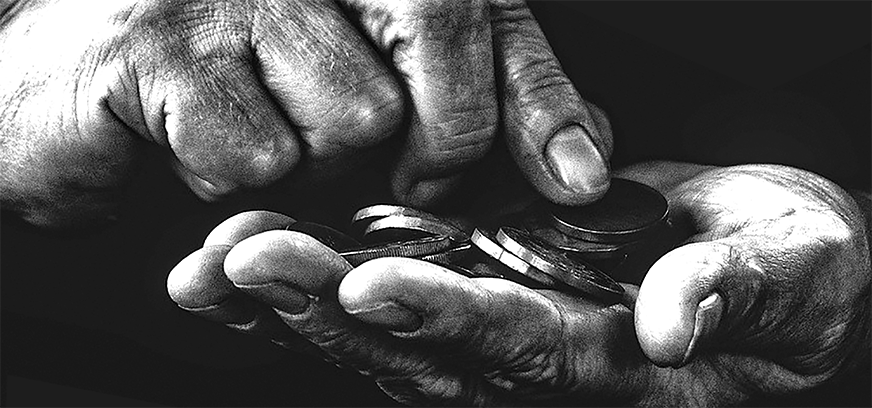REDRESS: The value of recovered assets linked to the state capture probe was R11 billion in march this year
By Monk Nkomo
South Africa was facing the corrosive effects of corruption and pervasive crime as well as high levels of unemployment and economic growth that was too low to create jobs and reduce poverty, according to President Cyril Ramaphosa.
Addressing the National Assembly in Parliament on the Presidency’s Budget Vote this week, he painted a gloomy picture the country was experiencing stressing that South Africa faced an increasingly volatile world, with disruptions to global trade and deepening conflicts causing reverberations across the globe.
‘’Today, the world faces real and significant challenges. So do we as a country. We face the corrosive effects of corruption and pervasive crime, to which the poorest are most vulnerable. We face the daunting task of building a State that is capable of tackling these challenges and restoring the trust of the people.’’
It was with these challenges in mind that they formed a Government of National Unity to place the country on a path of growth and transformation – a path of peace and prosperity.
The greatest challenge the country was facing was youth unemployment with nearly 3,8 million out of 10,3 million young people aged between 15 to 24 years not in employment , education or training.
Ramaphosa also defended his decision to establish a Commission of Inquiry into allegations by KwaZulu-Natal provincial police commissioner, Nhlanhla Mkhwanazi that Police Minister, Senzo Mchunu interfered with police investigations and colluded with business people , including a murder accused, to disband the Political Killings Task Team based in KZN.
‘’ It is strange that some people have voiced strong opposition to the establishment of the Commission of Inquiry. Some have said I should take immediate punitive steps against the Minister on the basis of untested allegations. Not only would this be unfair, but it would create a dangerous precedent . ‘’The allegations are serious. They are also untested. It is therefore necessary that we establish the facts through an independent , credible and thorough process so that we can ensure accountability and safeguard public confidence in the police service. The Commission should be allowed to do its work.’’
Some people, Ramaphosa added, had resurrected the tired line that the Commissions and panels that government had established in the past, had not yielded any meaningful results. That view was wrong and was not borne out by any evidence.
The President dismissed claims by several political opposition parties that Commissions of Inquiry were a waste of taxpayers money and had produced no results.
Ramaphosa reminded them that in 2018, the Commission of Inquiry, chaired by Judge Robert Nugent , was launched to probe tax administration and governance in the South African Revenue Service (SARS). The findings and recommendations of this inquiry resulted in a comprehensive overhaul of SARS’ leadership, governance structures and operational capacity.
This also enabled SARS to significantly increase revenue collection, improve compliance and recover substantial sums of unpaid tax. There was also the inquiry, chaired by Judge Lex Mpati, into the Public Investment Corporation, which exposed serious governance failures and led to far-reaching institutional reforms.
‘’ These Commissions resulted in disciplinary actions and the cancellation of unlawful contracts’’ said Ramaphosa.
In the three years since the final report of the State Capture Commission was presented to the President, government had undertaken major reforms based on its recommendations. Eight new laws had been enacted to strengthen the anti-corruption institutions, enhance procurement systems, reform the intelligence services, enhance corporate accountability and public administration.
‘’ The value of assets linked to State capture that have been recovered by the State stood at nearly R11 billion by March 2025. Another R10,6 billion is currently frozen, awaiting the outcome of cases in court. There are also criminal cases arising from the State capture Commission that have been concluded with guilty verdicts. Other cases , involving 51 individuals and 27 companies are currently enrolled in court.’’
Ramaphosa said when they established the GNU, they understood that they were embarking on a new era in the life of the country’s democracy. They understood that there would be complex dynamics and novel challenges that they would need to navigate. Together, they had adopted the Medium Term Development Plan, which outlined clear actions that they would undertake over the next five years in pursuit of three strategic priorities.
The government was following through on their commitment to invest more than R1 trillion in infrastructure over the next three years to renew the country’s roads, ports, rail, energy and water systems. Communities in the cities and rural areas would benefit from rapid growth in tourism. Nearly nine million international tourists visited South Africa last year directly spending about R90 billion.
Across all ministries, all departments and all national entities, there was a commitment to implement the actions on which the GNU had agreed and to move with urgency and purpose to address the needs of South Africans.
‘’Most importantly, there is a shared understanding that we need to rise above our differences and to work together to make progress on our most important challenges. The approach of the Government of National Unity is to enhance national cohesion and nation building and to build partnerships across society to advance the common interests of all South Africans.’’
Ramaphosa added that the National Dialogue , to be held from next month, was being convened in response to calls from individuals and formations from across society. This initiative had received wide support and had been endorsed by the GNU as a significant national process to develop a social compact that would enable us to meet the aspirations of the National Development Plan.
At every important moment in the history of the country, they had come together to define a shared vision and forge a path into the future in dialogue with one another. The National Dialogue was not just about talking.
‘’Like CODESA, like the National Peace Accord, like the consultation process that led to our new Constitution, the National Dialogue is expected to produce real results that have a tangible impact on people’s lives. We are all called upon to use this National Dialogue as an instrument of development, transformation, progress, national cohesion and nation building. The National Dialogue does not displace the democratic processes mandated by our Constitution, nor the electoral mandates that parties carry into Parliament and the Executive’’.
As the National dialogue process continued, the Government of National Unity would continue to take action to address the immediate concerns that all South Africans shared – to grow the country’s economy, to create jobs, to tackle corruption and crime and to fix local government.
Ramaphosa said the government’s Medium Term Development Plan set specific measurable targets for each of their programmes, and these budget votes quantified the resources that they would need to reach these targets. However, the true measure of success was the impact that they had on people’s lives.
‘’Everything that this government does – from trade negotiations to economic reforms, from the professionalisation of the Public Service to support for farmers and small businesses – is directed towards meeting the needs of South Africa’s people and securing their future. The role of The Presidency is to coordinate the work of Government towards this end, and to make sure that our commitments are translated into action’’.
The government’s most important priority was to grow the economy and create jobs. South Africans benefitted when the economy grew, when jobs were created, when established industries expanded and new industries emerged.
Referring to the energy sector, Ramaphosa said working together with all stakeholders, they had made outstanding progress in reducing the severity and frequency of load shedding.
‘’ Our task is clear : We must grow our economy, create jobs, reduce poverty, tackle corruption and crime and build a State that works with institutions that will stand the test of time.’’




























